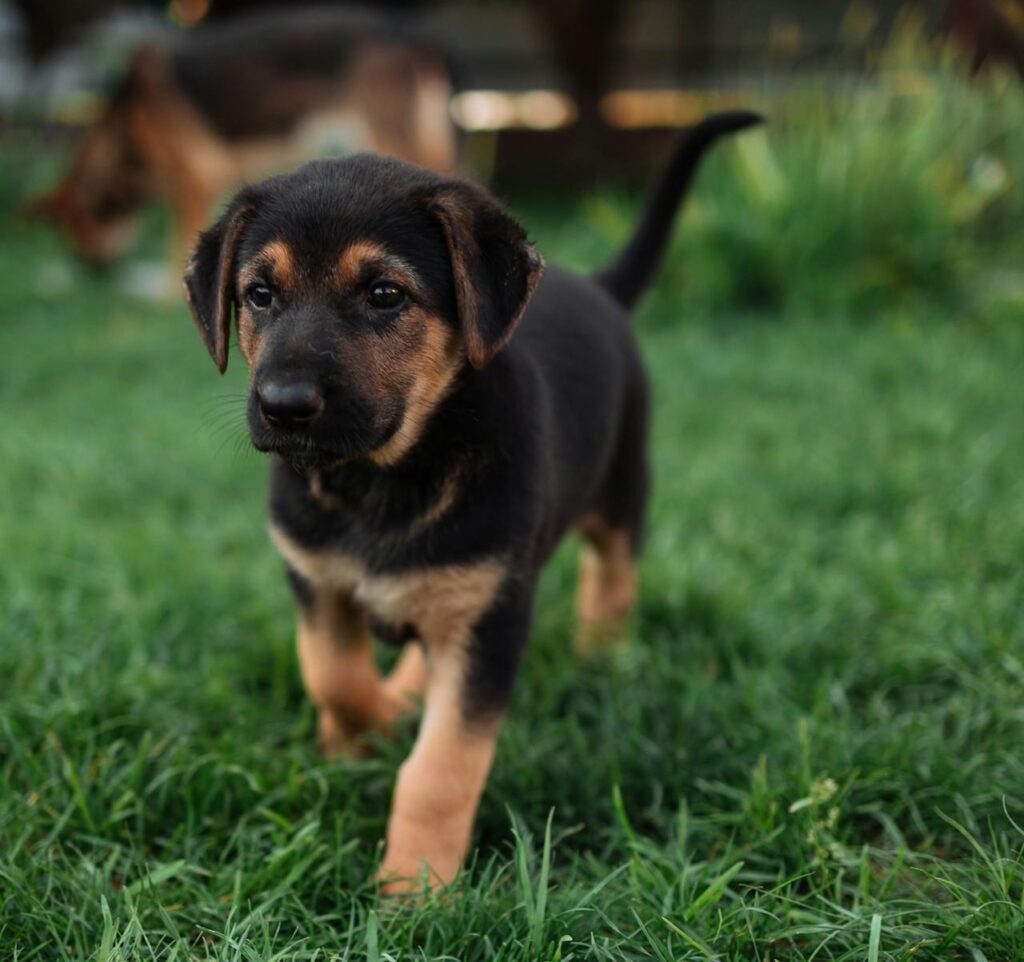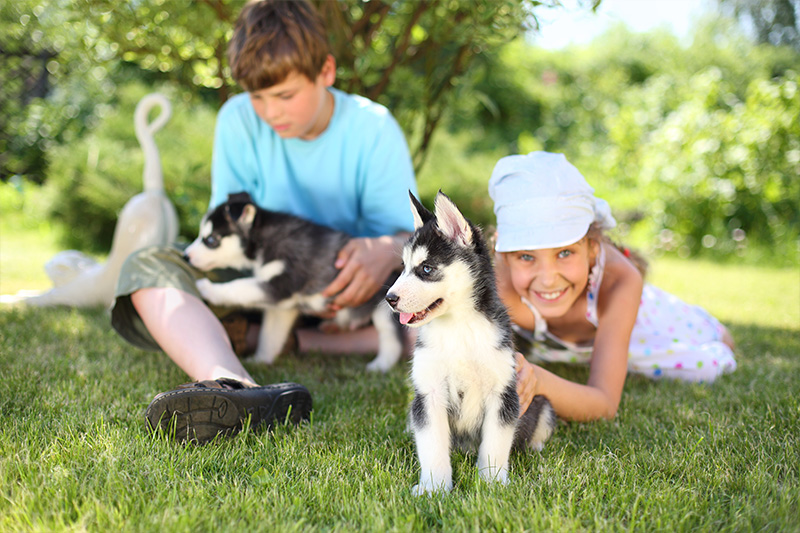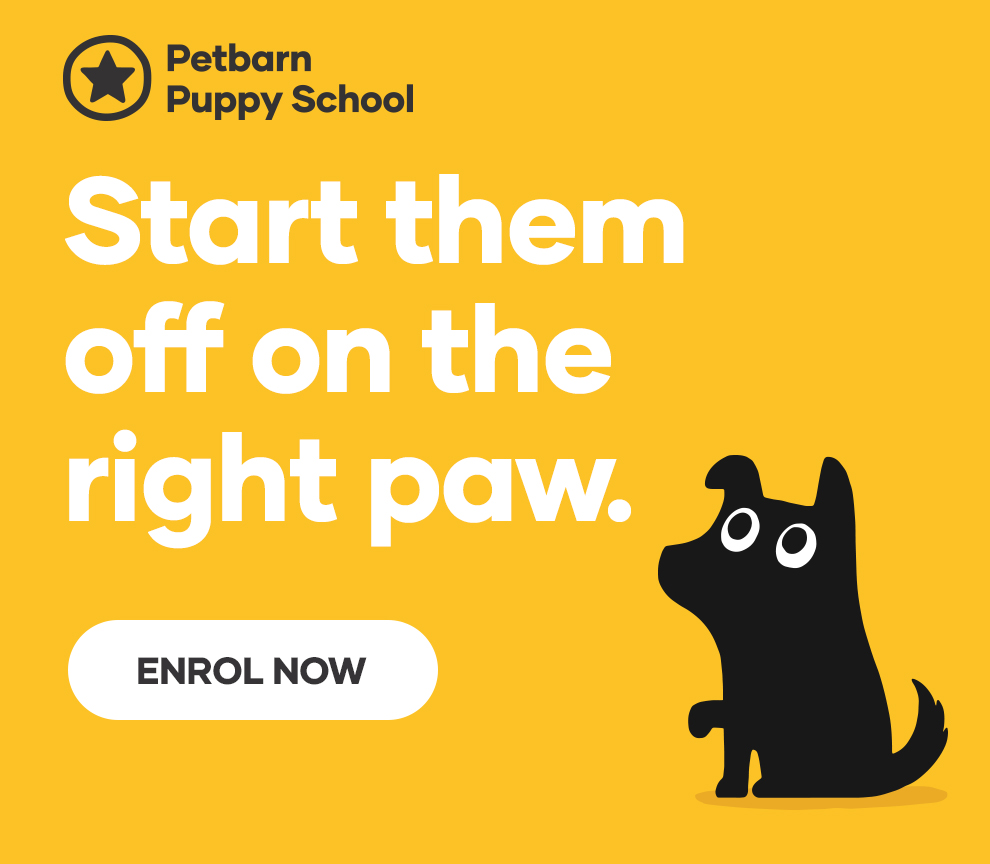Socialisation is a big part of your puppy’s early learning journey. Here are our tips for successful socialisation.
When you bring your puppy home, there are many new experiences for them to encounter. Sights, sounds, smells, new people, pets, and a whole new routine to learn. Successful socialisation means managing your pup’s exposure to new experiences to ensure they feel safe and relaxed. This might sound like an overwhelming task, but we are here to help you through it!
What is socialisation and why is it important?
Socialisation is the process of exposing your puppy to different people, animals, places, and situations, so they can learn how to behave appropriately and confidently in various scenarios. Creating safe and enjoyable new experiences for your pup will help them become a confident and resilient adult dog.
Socialising your puppy is not as simple as taking them out and letting them meet everyone and everything. You need to be careful about when, where, and how you introduce your puppy to new experiences, to ensure they have positive and relaxed associations with those scenarios.
If your puppy isn’t correctly socialised, they can develop phobias and behavioural problems that can be very hard to fix down the track.
Where to start with puppy socialisation
Your puppy’s socialisation starts before you even bring them home, as they learn from their mother and siblings, and the environment around them.
When you first bring your pup home, keep things relaxed and quiet for a few days as they find their feet in their new surroundings. You can start introducing more novel activities and training after this initial period of decompression.
Don’t rush out to the dog park
It’s very important that you don’t allow your pup to interact with unknown dogs or visit dog-populated areas outside of the home before they have completed their vaccinations.
Puppies aged 8-16 weeks are in a key period for developing social skills, but they have immature immune systems that leave them vulnerable to common, deadly viruses until they’ve received their full course of vaccines.
A great solution is to enrol your pup in Puppy School. Puppy School provides a safe and clean environment for your pup to begin interacting with new people and puppies. You will also learn about dog communication and your pup will pick up some basic cues too!
There’s plenty you can do to socialise your puppy at home
Before your puppy is fully vaccinated and ready to take on the world, plan socialisation experiences at home. You can help your puppy get used to household appliances such as the vacuum or washing machine, encourage them to play on different surfaces (carpet, grass and so on), begin gentle handling practice and more.
Your puppy’s first exposure to a new sight/smell/activity should be kept short in duration and low in intensity to ensure they don’t become overwhelmed or frightened. Make sure to reward them for calm reactions with their favourite treats, toys, and loving attention!
How to socialise a puppy once they’re vaccinated
Once your puppy’s core vaccination course is completed, socialisation with people and animals outside your home should be your key focus. It’s very important that your puppy interacts with lots of new people and animals, as well as takes part in varied experiences in their early stages so they can work out the right way to behave.
You should encourage their curiosity and respond positively when they tackle a new experience. If your puppy responds with fear to a new person or animal, you mustn’t make a big deal of it or remove them from the situation briskly. This will only reinforce negativity and lay the foundations for a fearful response in future. If you see your puppy relax and respond warmly to a new experience, reward them with praise.

Puppy socialisation checklist
Gradually introducing your puppy to different people, pets and environments will help them to become confident and relaxed in various day-to-day scenarios. Consider introducing your puppy to:
People & animals
- children of all ages
- adults, both men and women
- people with hats, glasses, facial hair, etc.
- people with crutches, wheelchairs, canes, etc.
- people on motorbikes, bicycles, scooters, etc.
- dogs and other puppies
- other pets
Places
- sidewalks
- parks and beaches
- veterinary clinics
- pet stores
- other people’s homes
- car parks
- construction sites
- ponds and rivers
- different surfaces – grass, slippery floors, stairs, wobbly surfaces, mud, sand, carpet, etc.
Experiences
- riding in your car
- grooming
- bath time
- leash training
- crate training
- loud noises – vacuums, fireworks, traffic, hair dryer, microwave, music, large crowds, etc.
- having different parts of their body gently handled, including mouth, ears, and paws.
- rain and thunderstorms
- swimming
- wearing clothing
Tick items off your socialisation checklist at puppy school
Puppy school gives your puppy the opportunity to get experiencewith groups of people and puppies, leash and crate training, being handled, and experiencing loud noises by registering your pet in our puppy school. Puppy School is a fun and interactive course that will teach you how to train your puppy and allow your puppy to socialise in a positive environment.



